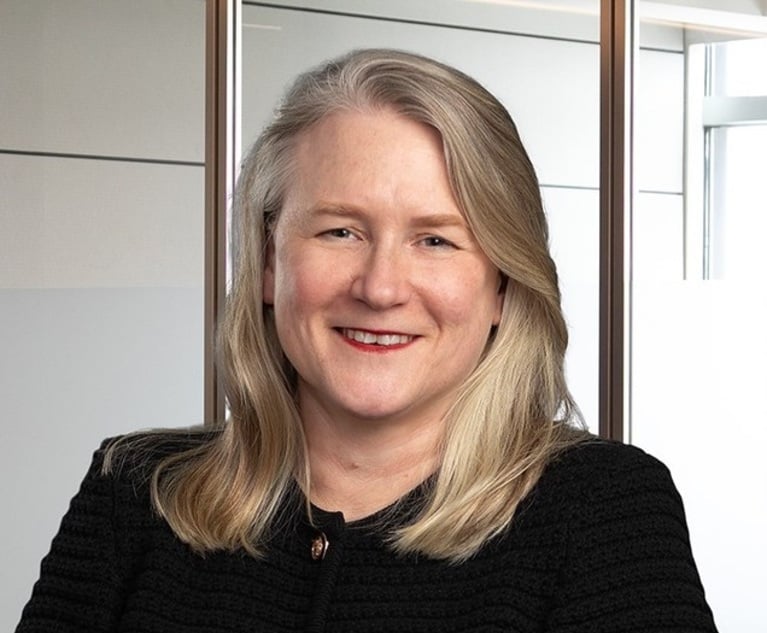CC and Linklaters lead as BP and Shell face price fixing investigation
Clifford Chance (CC) and Linklaters have scooped key mandates for Shell and BP, as the oil majors face investigation by the European Commission over allegations of oil and biofuel price fixing. The Commission made a series of unannounced office inspections at companies, including BP, Shell, Statoil and oil pricing agency Platts on Tuesday (14 May), amid concerns the companies may have violated European antitrust rules over cartels and abuse of dominant market position.
May 16, 2013 at 07:22 AM
2 minute read
Clifford Chance (CC) and Linklaters have scooped key mandates for Shell and BP, as the oil majors face investigation by the European Commission over allegations of oil and biofuel price fixing.
The Commission made a series of unannounced office inspections at companies, including BP, Shell, Statoil and oil pricing agency Platts on Tuesday (14 May), amid concerns the companies may have violated European antitrust rules over cartels and abuse of dominant market position.
Shell general counsel Peter Rees QC confirmed that the oil giant has instructed CC global competition head Oliver Bretz and London-based competition partner Alastair Mordaunt to advise on the matter.
Meanwhile Linklaters' competition team is understood to be advising long-term client BP in relation to the investigation. Last year the firm advised BP on its multibillion-dollar sale of Russian oil joint venture TNK-BP to Rosneft.
None of the companies were mentioned by name in the Commission's announcement but all have confirmed that they are cooperating with authorities.
The Commission's statement said the organisation had "concerns that the companies may have colluded in reporting distorted prices to a Price Reporting Agency (PRA) to manipulate the published prices for a number of oil and biofuel products". It stressed that the inspections do not mean that the companies are guilty of anti-competitive behaviour and are not a judgement on the investigation's outcome.
PRAs set benchmarks for the trade of oil in the physical and financial derivative markets in Europe and globally. Small distortions of assessed prices can have a huge impact on the price of crude oil, refined oil products and biofuels purchases and sales.
There are no legal deadlines to complete inquiries into anticompetitive conduct, but the length of the investigation is likely to hinge on the complexity, the cooperation of the companies, and the exercise of rights of defence.
Separately, Shell is currently informing firms of the result of its review of external legal advisers, with between two and five firms expected to receive appointments per practice area in each jurisdiction.
This content has been archived. It is available through our partners, LexisNexis® and Bloomberg Law.
To view this content, please continue to their sites.
Not a Lexis Subscriber?
Subscribe Now
Not a Bloomberg Law Subscriber?
Subscribe Now
NOT FOR REPRINT
© 2025 ALM Global, LLC, All Rights Reserved. Request academic re-use from www.copyright.com. All other uses, submit a request to [email protected]. For more information visit Asset & Logo Licensing.
You Might Like
View All
Perkins Coie Builds in London With Ex-Norton Rose Fulbright Brussels Head
2 minute read
Combative Arguments at EU's Highest Court Over Google's €4.13B Antitrust Fine Emphasize High Stakes and Invoke Trump
4 minute read
‘Raises More Questions Than Answers’: Partners Puzzled by Leadership Change at UK Competition Regulator

CMA Uses New Competition Powers to Investigate Google Over Search Advertising
Trending Stories
- 1Law Firm Fails to Get Punitive Damages From Ex-Client
- 2Over 700 Residents Near 2023 Derailment Sue Norfolk for More Damages
- 3Decision of the Day: Judge Sanctions Attorney for 'Frivolously' Claiming All Nine Personal Injury Categories in Motor Vehicle Case
- 4Second Judge Blocks Trump Federal Funding Freeze
- 5Crypto Hacker’s $65 Million Scam Ends in Indictment
Who Got The Work
J. Brugh Lower of Gibbons has entered an appearance for industrial equipment supplier Devco Corporation in a pending trademark infringement lawsuit. The suit, accusing the defendant of selling knock-off Graco products, was filed Dec. 18 in New Jersey District Court by Rivkin Radler on behalf of Graco Inc. and Graco Minnesota. The case, assigned to U.S. District Judge Zahid N. Quraishi, is 3:24-cv-11294, Graco Inc. et al v. Devco Corporation.
Who Got The Work
Rebecca Maller-Stein and Kent A. Yalowitz of Arnold & Porter Kaye Scholer have entered their appearances for Hanaco Venture Capital and its executives, Lior Prosor and David Frankel, in a pending securities lawsuit. The action, filed on Dec. 24 in New York Southern District Court by Zell, Aron & Co. on behalf of Goldeneye Advisors, accuses the defendants of negligently and fraudulently managing the plaintiff's $1 million investment. The case, assigned to U.S. District Judge Vernon S. Broderick, is 1:24-cv-09918, Goldeneye Advisors, LLC v. Hanaco Venture Capital, Ltd. et al.
Who Got The Work
Attorneys from A&O Shearman has stepped in as defense counsel for Toronto-Dominion Bank and other defendants in a pending securities class action. The suit, filed Dec. 11 in New York Southern District Court by Bleichmar Fonti & Auld, accuses the defendants of concealing the bank's 'pervasive' deficiencies in regards to its compliance with the Bank Secrecy Act and the quality of its anti-money laundering controls. The case, assigned to U.S. District Judge Arun Subramanian, is 1:24-cv-09445, Gonzalez v. The Toronto-Dominion Bank et al.
Who Got The Work
Crown Castle International, a Pennsylvania company providing shared communications infrastructure, has turned to Luke D. Wolf of Gordon Rees Scully Mansukhani to fend off a pending breach-of-contract lawsuit. The court action, filed Nov. 25 in Michigan Eastern District Court by Hooper Hathaway PC on behalf of The Town Residences LLC, accuses Crown Castle of failing to transfer approximately $30,000 in utility payments from T-Mobile in breach of a roof-top lease and assignment agreement. The case, assigned to U.S. District Judge Susan K. Declercq, is 2:24-cv-13131, The Town Residences LLC v. T-Mobile US, Inc. et al.
Who Got The Work
Wilfred P. Coronato and Daniel M. Schwartz of McCarter & English have stepped in as defense counsel to Electrolux Home Products Inc. in a pending product liability lawsuit. The court action, filed Nov. 26 in New York Eastern District Court by Poulos Lopiccolo PC and Nagel Rice LLP on behalf of David Stern, alleges that the defendant's refrigerators’ drawers and shelving repeatedly break and fall apart within months after purchase. The case, assigned to U.S. District Judge Joan M. Azrack, is 2:24-cv-08204, Stern v. Electrolux Home Products, Inc.
Featured Firms
Law Offices of Gary Martin Hays & Associates, P.C.
(470) 294-1674
Law Offices of Mark E. Salomone
(857) 444-6468
Smith & Hassler
(713) 739-1250








